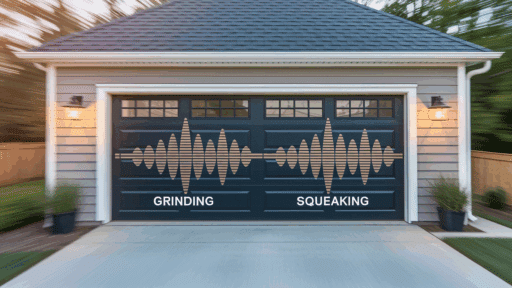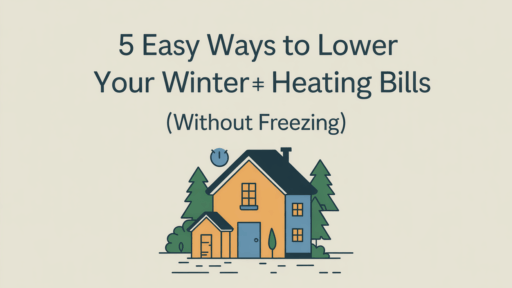Choosing the right home loan is one of the most important financial decisions you’ll ever make. Whether you’re a first-time homebuyer or a seasoned investor, making the right choice can save you a substantial amount of money over time. With mortgage rates fluctuating and multiple loan options available, navigating this process might seem overwhelming. However, by taking a thoughtful approach and considering a few key factors, you can make a well-informed decision that aligns with your long-term financial goals.
Understand Your Financial Situation

Before diving into the mortgage market, it’s crucial to assess your current financial health. Understanding where you stand will help you determine which loan products are most suitable for you. First, check your credit score. This three-digit number significantly impacts the types of loans you can qualify for, as well as the rates you’re offered. The higher your credit score, the more favorable your loan terms will be, especially when it comes to securing lower home interest rates.
Along with your credit score, evaluate your debt-to-income ratio. This ratio compares your monthly debt obligations to your income, providing lenders with insight into how much you can afford to borrow. A lower ratio indicates a better ability to manage monthly payments, which can increase your chances of approval for a mortgage.
Don’t forget to take a close look at your savings. A larger down payment can help you secure better loan terms. It can also reduce the amount you need to borrow, which means less interest paid over time. While the standard down payment is 20%, some loan options may allow for less, especially if you’re a first-time buyer. However, keep in mind that putting less down may result in private mortgage insurance (PMI) costs, which will increase your monthly payments.
Types of Home Loans Available
Once you have a solid understanding of your financial situation, it’s time to explore the various types of home loans available. Each loan type has its pros and cons, and choosing the right one depends largely on your financial goals and personal preferences.
Conventional Loans vs. Government-Backed Loans
Conventional loans are the most common type of mortgage and are typically offered by banks and credit unions. These loans usually require a higher credit score and a larger down payment, but they come with the benefit of not requiring mortgage insurance if you put down at least 20%. If you’re able to meet these requirements, conventional loans may offer the best interest rates.
On the other hand, government-backed loans such as FHA, VA, and USDA loans can be more accessible for those with lower credit scores or smaller down payments. FHA loans, for instance, are a popular choice for first-time homebuyers because they allow for down payments as low as 3.5%. VA loans, available to veterans and active military members, offer great benefits like no down payment and no PMI. USDA loans are another option for those looking to buy homes in rural areas and offer favorable terms for eligible borrowers.
Fixed-Rate vs. Adjustable-Rate Mortgages
Another critical decision when choosing a home loan is whether to opt for a fixed-rate or adjustable-rate mortgage (ARM). With a fixed-rate mortgage, your interest rate remains the same for the entire life of the loan, providing predictability and stability. This type of mortgage is ideal for buyers who plan to stay in their home for a long period and prefer the certainty of fixed monthly payments.
An adjustable-rate mortgage, on the other hand, offers a lower initial interest rate, which can save you money in the early years of the loan. However, the interest rate can increase after a set period, potentially leading to higher payments later on. If you’re planning to sell or refinance before the rate adjusts, an ARM can be a great option. However, if you expect to stay in your home long-term, a fixed-rate mortgage may be the safer choice.
Specialized Loans
There are also specialized loan options available, depending on your situation. For example, an FHA loan is an excellent option for first-time buyers with limited savings or a lower credit score. Similarly, VA loans cater specifically to veterans and active-duty military personnel, often offering more favorable terms than conventional loans.
USDA loans, aimed at buyers in rural areas, also offer attractive terms with no down payment and competitive interest rates. It’s essential to research and consider these specialized loans if you meet the eligibility criteria, as they can offer significant advantages compared to traditional mortgages.
Shop Around for the Best Mortgage Rates
Once you’ve narrowed down your loan options, the next step is to shop around for the best mortgage rates. Mortgage rates vary significantly from one lender to the next, so it’s essential to compare offers to ensure you’re getting the best deal.
When comparing rates, it’s important to consider the annual percentage rate (APR) rather than just the interest rate. The APR takes into account not only the interest rate but also any additional fees and closing costs associated with the loan. This gives you a more comprehensive picture of what your mortgage will actually cost over the life of the loan.
Many lenders offer online tools that allow you to compare mortgage rates easily. Make sure to check the fine print of each offer and pay attention to any additional fees or conditions. Lenders may charge application fees, processing fees, or other charges, which can add up quickly. By reviewing the total cost of each loan, you can make a more informed decision about which lender offers the best value.
Factor in Your Long-Term Financial Goals
Choosing a mortgage isn’t just about securing the lowest interest rate; it’s also about aligning your loan with your long-term financial goals. One of the key decisions you’ll need to make is how long you plan to stay in your home.
For those planning to stay in the home for many years, a 30-year fixed-rate mortgage is a common choice. It offers stability and predictable payments, which is ideal for long-term homeownership. However, if you want to pay off your mortgage faster and save on interest, a 15-year fixed mortgage can be a great option. While your monthly payments will be higher, you’ll pay off the loan in half the time and save a significant amount of money on interest.
On the other hand, if you’re planning to move in the next few years, a shorter loan term or an adjustable-rate mortgage might be more beneficial. By opting for a lower initial rate, you could save money in the short term and avoid paying higher rates down the road.
Consider Additional Costs and Fees
In addition to the interest rate, it’s essential to factor in other costs associated with securing a mortgage. Closing costs, for instance, can vary from lender to lender and can be quite substantial. These costs often include fees for appraisals, inspections, title searches, and attorney services. It’s a good idea to get a breakdown of all closing costs early in the process so you can prepare financially.
Private mortgage insurance (PMI) is another cost to consider if your down payment is less than 20%. PMI protects the lender in case you default on the loan, but it adds to your monthly payments. If possible, it’s worth saving up for a larger down payment to avoid this additional cost.
Consult a Mortgage Broker or Financial Advisor
If you’re feeling overwhelmed by the process or unsure which loan type is best for your situation, it might be worthwhile to consult a mortgage broker or financial advisor. Brokers can help you navigate the different options, compare rates from multiple lenders, and find the best deal for your needs.
A financial advisor can provide insight into how a mortgage fits into your broader financial plan. They can help you understand the long-term implications of your loan and ensure it aligns with your overall financial goals, whether that’s saving for retirement, paying off debt, or building wealth.
Conclusion
Making an informed decision when choosing a home loan is vital to securing your financial future. By understanding your financial situation, exploring different loan types, comparing mortgage rates, and factoring in your long-term goals, you can choose a home loan that suits your needs. Remember to consider additional costs like closing fees and PMI, and don’t hesitate to seek professional advice if needed. With careful planning, you can make a smart decision that will benefit you for years to come.








